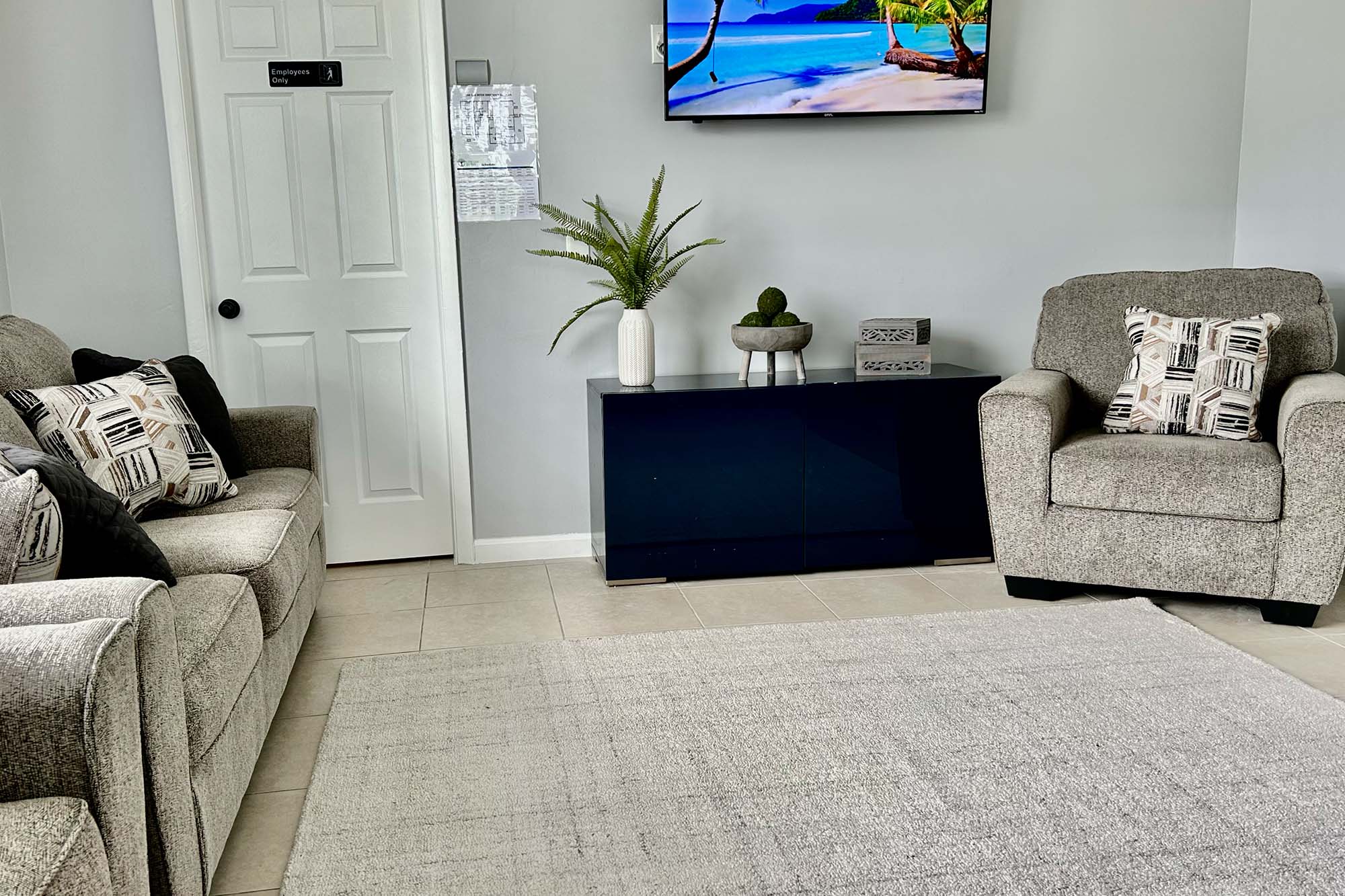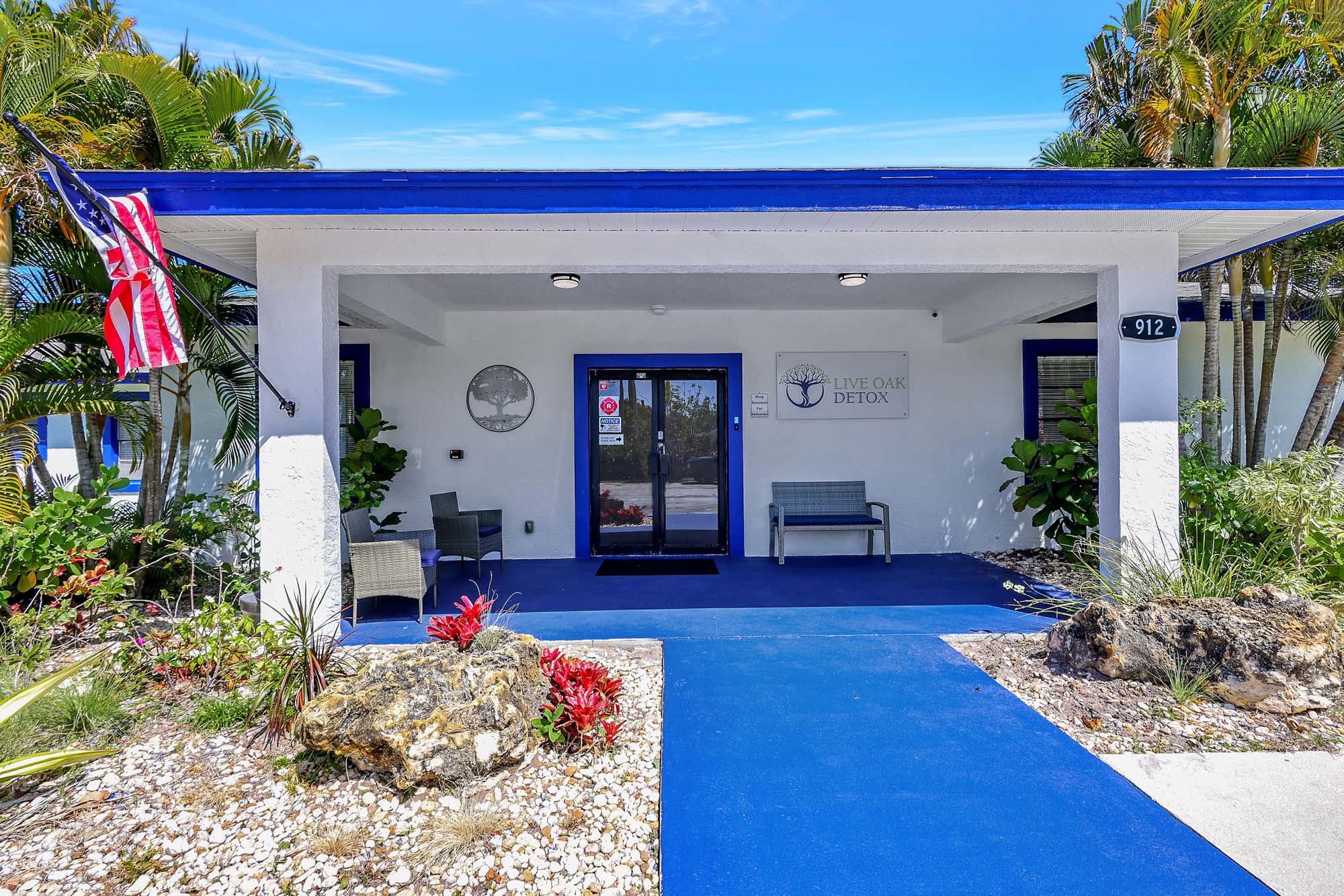Anxiety Treatment
Comprehensive Anxiety Treatment for Lasting Recovery
Anxiety & Addiction
The connection between anxiety and addiction is complex and can vary from person to person. Here are a few points of connection:
Self-Medication
Dual Diagnosis
Neurochemical Factors
Genetic and Environmental Factors
Chronic Stress
Our staff is trained to treat patients dealing with anxiety, call us today!
The Physical and Neurological Impact of Anxiety
Physical Symptoms
Anxiety can manifest in various physical symptoms. Here are some common physical symptoms associated with anxiety:
Neurological Symptoms
Anxiety can also manifest in various neurological symptoms. Here are some common neurological symptoms associated with anxiety:
Patients who turn to drugs and alcohol for relief may only worsen their condition. They may feel some temporary relief, but it is short-lived and may worsen their physical and mental health. Patients can expect a more extended recovery period for co-occurring disorder treatment as therapists treat addiction and anxiety disorders.
It’s important to remember that anxiety symptoms can vary from person to person, and not everyone will experience the same symptoms. If you are experiencing neurological symptoms of anxiety that are affecting your daily life, it’s a good idea to seek support, call us at Live Oak!
Benefits of an Anxiety Treatment Program
There are several benefits to participating in an anxiety treatment program. Here are some potential advantages:
Reduced Anxiety Symptoms
Improved Quality of Life
Enhanced Coping Skills
Increased Self-Awareness
Prevention of Complications
It’s important to note that the specific benefits of an anxiety treatment program can vary depending on the individual, the severity of their anxiety, and the chosen treatment approach.
Seek Treatment
At Live Oak Detox, our program helps individuals struggling to cope with their anxiety. We offer medical and behavioral therapy to help alleviate their symptoms and change negative thinking patterns. To do this, we employ a variety of therapy programs that include:
To learn more about our program and how it can help you or someone you care for, call (877) 716-4464 today.
Frequently Asked Questions
What is anxiety treatment at Live Oak Detox?
Anxiety treatment at Live Oak Detox provides evidence-based therapy and clinical support designed to help adults manage symptoms like excessive worry, nervousness, panic, and stress that interfere with daily functioning and overall well-being.
How is anxiety treated alongside addiction?
Anxiety and substance use often occur together. Live Oak offers integrated dual diagnosis care so that both anxiety symptoms and addiction are treated simultaneously, reducing triggers and building healthier coping tools for long-term recovery.
What types of therapies are used for anxiety treatment?
Live Oak Detox uses evidence-based therapies such as cognitive-behavioral approaches and supportive counseling to help clients understand anxiety triggers, restructure unhelpful thoughts, and develop practical skills to manage symptoms.
Where can I find anxiety treatment near Fort Pierce, Florida?
Live Oak Detox Center offers anxiety treatment in Fort Pierce, FL, providing compassionate, clinical support as part of individualized mental health and addiction care. Admissions are available 24/7 to answer questions and help you get started.
Alcohol Detox and Rehab Program
Drug Detox & Rehab Program
Admissions
Our Facility in South Florida
Our Location
Live Oak Detox
South Florida
Live Oak Detox is an inpatient substance abuse Detox and residential rehabilitation center
We provide state of the art medical and clinical interventions to bring you the best possible care available today. Call us to find out more.







